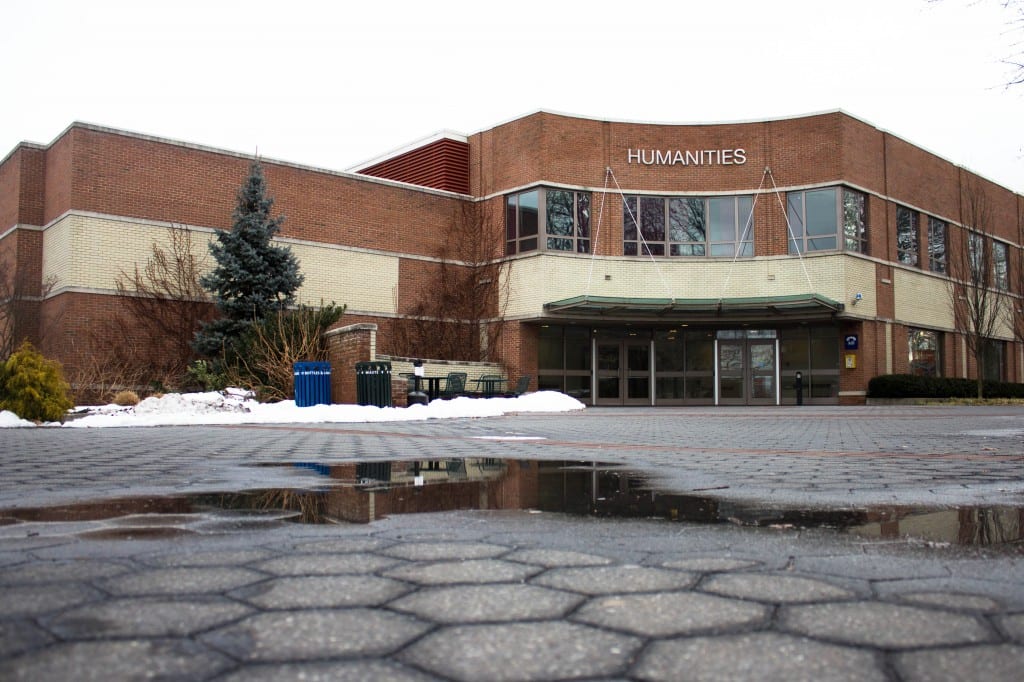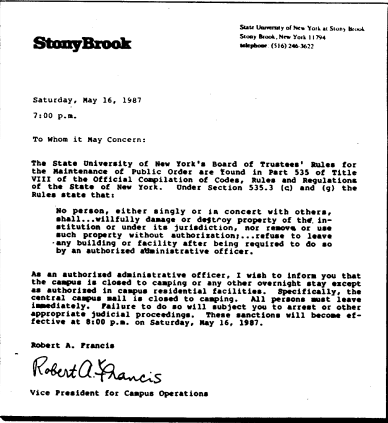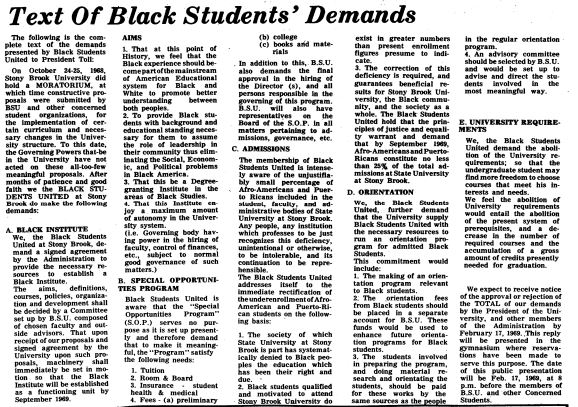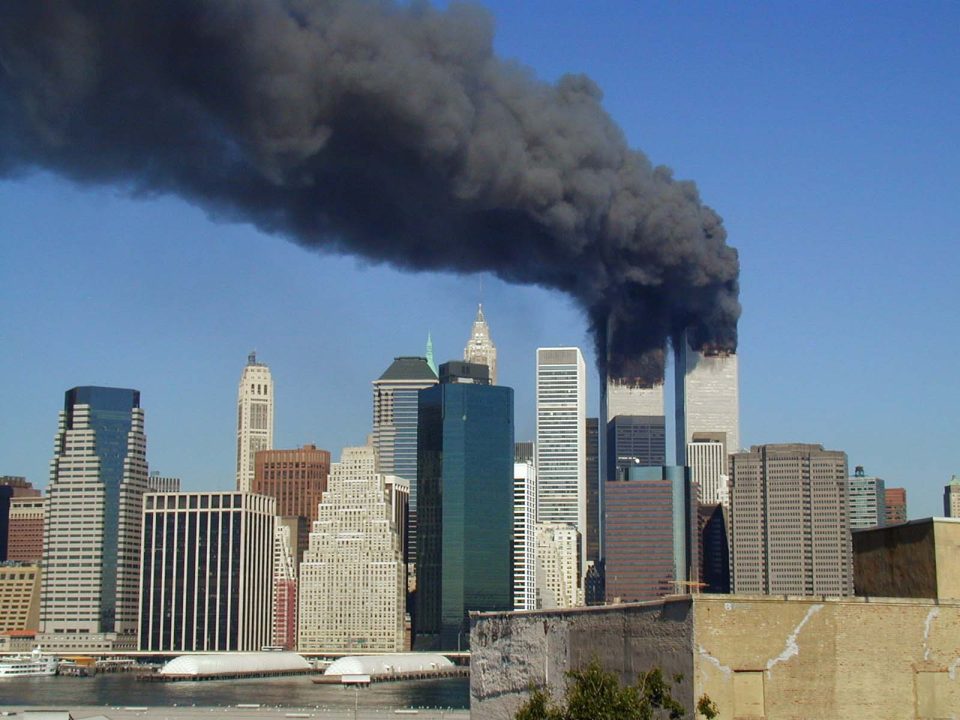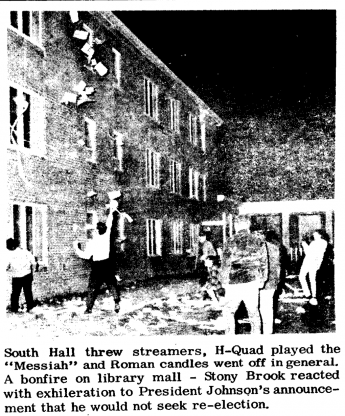
Originally published on April 2, 1968
April Fool’s comes but once a year, but this is no joke.
In a surprise announcement Sunday evening, Lyndon B. Johnson, in a presentation marred by his vague admissions of the previous bombing of population centers in the north of Vietnam, renewed once more the shattered faith in the American system held by so many. LYNDON JOHNSON WILL NOT ACCEPT HIS PARTY’S NOMINATION FOR PRESIDENT IN 1968. Amidst cheers in all the television rooms in the dorms, dancing in the lobbies, Food and drink, some 3-400 students joined in the celebration.
The news of the President’s refusal to run again is indicative of the extreme pressure is being placed on him, and criticisms of the administration’s conduct of the war, from the money student demonstrations and mobilizations, the Tet offensives, the Kennedy and McCarthy campaigns, and the general growth of concern over the nauseating assumption that Johnson would be president for another four years.
We must now focus our attention on the immediate future, for it shall be this immediate action that will determine the course of American policies, both at home and abroad, for the next eight years. Let us begin with the Democratic Party.
The Democratic Party has been split by the outgrowth of McCarthy victory in New Hampshire and the decision of Senator Robert F. Kennedy to run for the Presidency. The peace factions supported either of the senators, while the factions for continued warfare supported Mr. Johnson. Now that the decision has been made, the only people of significance that remain are the peace groups. The surprising announcement Sunday night brought to light the problems that have been plaguing the administration since the Gulf of Tonkin incident in 1964, that is the amount of in the United States. The president, before making his startling decision to a cost-to-coast radio and television audience, said that he wished that all people be united so that a show of strength could be made. Now, by announcing his decision, the President has united the country in goodwill and cheer.
The reflection of his decision on the local races across the country is widespread. Many of the candidates supporting his candidacy will have to switch allegiance is to either one of the two piece candidates, or will have to find a candidate of their own. But at this stage of the race, it is improbable that the latter will occur.
A statement by James Goldfarb and Bob Dulman, of the Stony Brook Young Democrats, a group which supports Senator McCarthy said: “it comes as a surprise to us that our President has seen it fit to withdraw himself from the 1968 Presidential race. Our organization (Student Coalition For a Democratic Alternative) is now, more than ever before, committed to the fight which we are now waiting to get senator Eugene McCarthy elected. We realize the difficulty is that why ahead for us and recognize our photo to be Richard Nixon. No commitment has ever before been given such a boost and we enthusiastically look forward to our work in the Connecticut primary next week in the Pennsylvania primary in two weeks.”
Dianne Fishman, one of the leaders of the Students for Kennedy, stated: “everyone is speechless. We all are excited to work for Kennedy. Kennedy has great chances, but we will be happy if even McCarthy gets in because he is a piece candidate.”
Other emotional and spur-of the moment comments from around campus included – “He told the people to go screw themselves!” From someone against the war.
– “Best thing that could have happened.” “Thrilled to death.” “Opens doors for dove.”
FACULTY REACTIONS
Some of the faculty, reacting in a typical matter, made the following statements: “this completely changed my opinion about the man. I am reluctant to discuss it at face value, but I do not suspect a political move. He effectively destroyed his chances.” Mr. Petrey of the French Department.
From the sociology department, Mr. Goodman had this to say: “I am shocked. The previous credibility gap makes this one suspect.”
Mr, Polsky ambiguated: “Two of the best things that have happened in a long time.”
Among other implications of this historic event were that the new student rules were declared to be in effect by some prominent campus leaders, and ten girls and 200 guys destroyed C-2 of South Hall, unraveled 33 rolls of toilet paper, spilled five buckets of water, etc.
Physics students were studying the possible repercussions of Johnson’s remarks on their grades on their midterms Monday. The office of THE STATESMAN was submerged in beer cans. It was the first time that the Statesman actually represented a typical, real-live newspaper.
HALLELUJAH CHORUS
To a course of hallelujahs and Peat Bog Soldiers, students marched to liberate the Library Mall. A roaring bonfire had been started by some ambitious students and by the time that most people assembled on the mall at 11:30 PM, it was burning quite well. Everyone being in such a jolly and friendly mood, dancing and singing soon began. Choruses of “Down by the Riverside,” “Goodbye Lyndon” (sung to Hello Dolly), and cries of “What do we want? Peace! When do we want it? Now!” rang throughout the air towards the Library. At the bottom of the hill, the Suffolk County Police had assembled and were standing silently by students begin their celebration.
POLITICAL IMPLICATIONS
In New York, Frank O’Connor, the President of the New York City Council, and the chairman of the Johnson for President campaign in New York, declared that those forces supporting Johnson now have no candidate to support. Everybody cried.
While Senator Robert F. Kennedy of New York was not available for comment at press time, one cannot help but realize that his candidacy was a major factor in Johnson’s decision. Kennedy added respectability to the opponents of the war, a factor previously lacking in the anti-war movement. Even so, Senator McCarthy was the first to formally announce his candidacy as an opponent to the war policy of the President. This attractive many students and liberals into The Movement centered around McCarthy as an appointment to the war. Whereas McCarthy never personally attack the President, Kennedy has used President Johnson as a political dartboard, denouncing all his policies as well as his image.
The question now arises as to what will happen to the peace movement, as well as the candidacy of Richard Nixon. While Johnson was still a candidate, Nixon claimed that the country needed a change of administration in order to secure a future peace. He offered no concrete solutions to the Vietnamese situation. Nixon must now attack policies and offer definite alternatives to the peace candidates since he cannot resume his campaign on a personality level as he had in the past. HE MUST FACE THE ISSUES. Since the republican party is split on the question of Richard Nixon and the war (the moderates are led by Senator Mark Hatfield, Mayor John V. Lindsay, and Illinois Senator Charles Percy), and since Nixon faces formidable opposition in the Kennedy and McCarthy machine campaigns, it is doubtful whether he will receive the republican party nomination regardless of the outcome of the primaries (where he runs unopposed). With this in mind, and with both Kennedy and McCarthy running as peace candidates, the people of the United States will have the rare opportunity to choose between the better of the candidates and their constructive alternatives that they propose, rather than the lesser of two evils, which has been the case so often in the past.
WHERE DO WE GO
Despite the fact that all the candidates for President claim to be peace candidates, the difference in their proposed alternatives is negligible. All students and concerned people must continue to force the issue to bring the issue to bear on the public. The voting booth is one place of protest, but public opinion is another.







